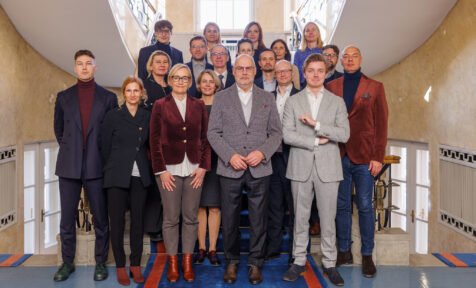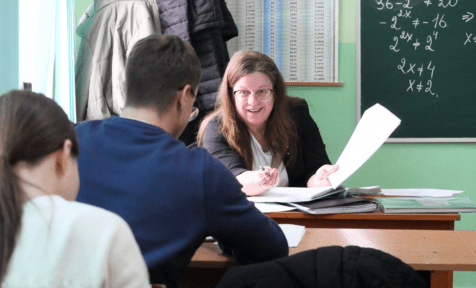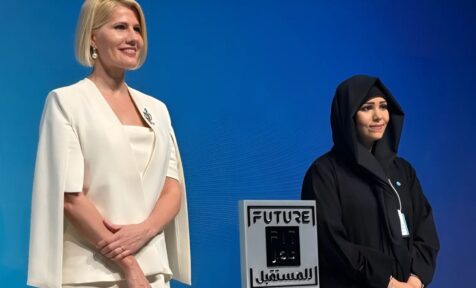‘I think it does not sweep anyone off their feet hearing that young women are less likely to continue their academic path in IT or to choose their career in tech compared to men,’ writes Anett Numa, the digital transformation adviser at the E-Estonia briefing centre. ‘We do not perceive this pattern only in Estonia but also in most of the other countries.’ The article was first published on the E-Estonia webpage.
Roughly, 3 men per 1 one woman are dominating in this sector. The technology sector has one of the highest gender disparities in course subjects. Quite insane to think, right?
Robotics and tech for girls only
I assume many of you would ask, is there even any possibility to change this? If yes, which way could be the most effective one? As with many other issues, it is wise to start from a grassroots level. These stereotypes are in our blood since very early childhood. Thus, once again, providing proper and inspiring education and training could be a game-changer here. Fortunately, an Estonian initiative, named the Unicorn Squad, has taken some extra strong steps to tackle this problem by offering an opportunity to take part in different hands-on activities for girls to learn more about robotics and tech. And by saying for girls, I really mean it. No boys are allowed to any of their classes or workshops.
See also:
ProgeTiger – Estonian way to create interest in technology
Girls who participate in these classes are aged between 8-12 and they come from various places across Estonia. They meet up once per week to focus on some real-life phenomena – such as magnetism, sound, and speed, or electricity. You name it. The aim is to create something real with their own hands, something that could really be used.
1000 members, 150 mentors
But where did this idea come from? A former CIO of Estonia, Taavi Kotka, said that some years ago his 10-years old daughter was kicked out of robotics class because there was not enough space for everyone and the boys in the class appeared a bit more active. And as a result, there were no girls left in the class. Therefore, he terribly wanted to create something only for girls. Kotka says that if there are no boys around, girls tend to be much more open and receptive to learning new skills in IT.
Less than two years after establishing the Unicorn Squad, today the club has 1000 members and 80 clubs around Estonia with more than 150 mentors. I think it clearly draws a brilliant picture of how many girls feel interested in this field.
Answering the growing demand for developers
And if one initiative was not an excellent example of what kind of role the private sector can play, I have another splendid story for you. Many of you are familiar with unicorn companies like Wise or Bolt, right? The founders of these companies and some others put their heads together and came out with an idea to build a new school in Jõhvi, a small town in Ida-Viru county, focusing on teaching IT and helping to reduce the growing demand for software developers. The program is a two-year intensive study, each student can choose his/her own pace by solving the tasks set by the system, connecting theory with real practice. Teaching is largely based on different group works and on developing problem-solving skills. Curriculum areas are software application and interfaces, databases, networks, and user experience design.
Tech firms give back to society
What’s unique about it is that the financial support to establish this school was received by the State Support Services Center (RTK) and also Transferwise, SEB bank, LHV bank, Superangel, Bolt, Astrec Data, Pipedrive, the Estonian Founders’ Society, Startup Estonia, and the Good Deed Education Foundation. In addition to that, private investors contribute more than 700 000 euros to public funding.
If you are older than 18-years and have at least basic education and you would successfully pass a one-month test period, you can easily apply. There is no need to have previous programming experience or knowledge in this field. The program is free for all the students and admission exams will begin already early in the spring of 2021.
What will YOU do?
So great ideas and changes do not always happen thanks to great governance but often because we are fortunate to have people in our society who really care and want to give back. People who notice the trends and are willing to invest their time, money, and energy in finding the best, efficient, and smart solutions. What if we all give ourselves a little promise during this Christmas time to do at least one small deed next year to make this world a better place?





